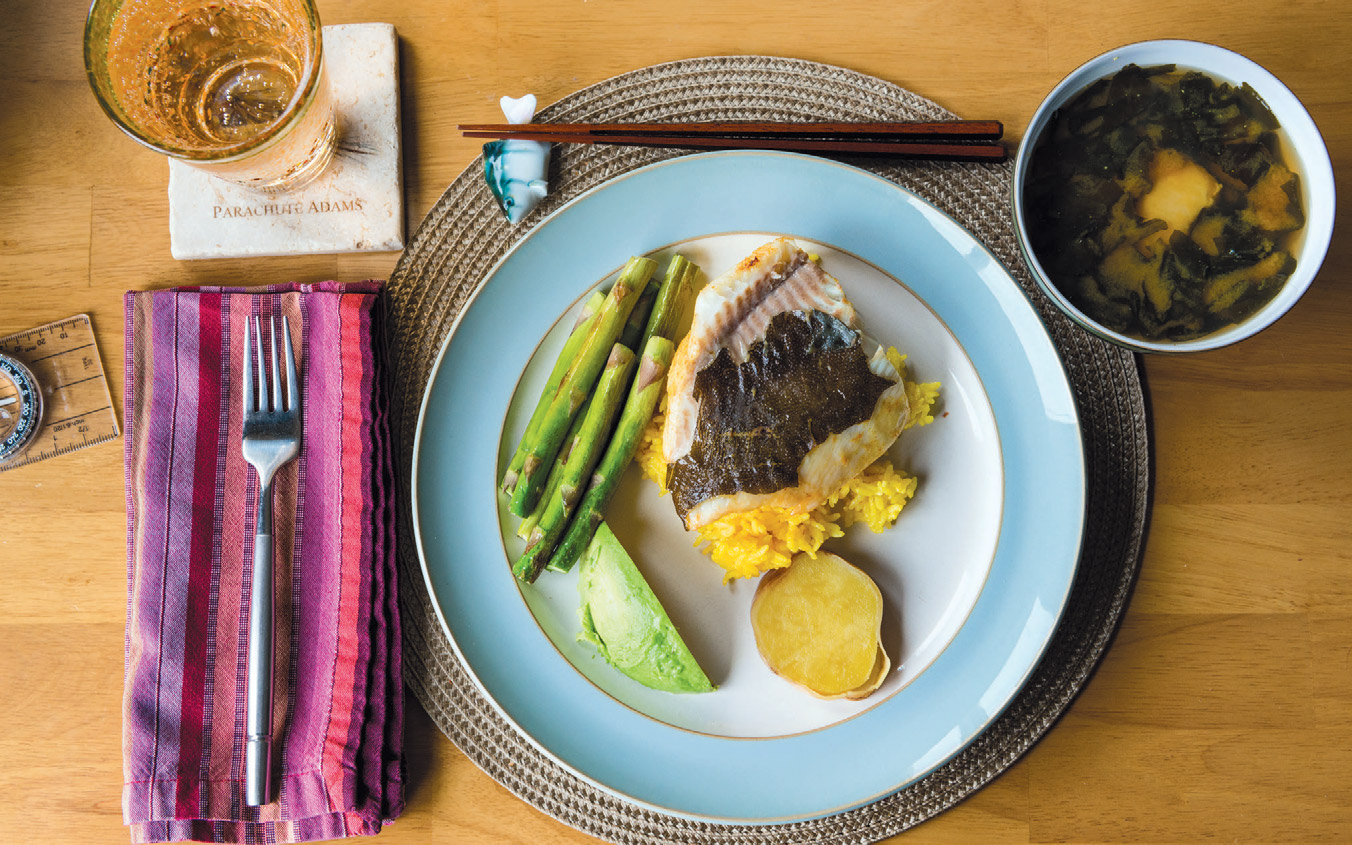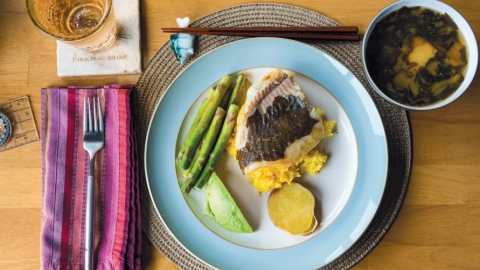Looking for a Skiff in the Chigniks
Meanwhile, Charcoal-Grilled Miso Halibut
Moderate breezes, 15 knots or so, blowing across the peninsula from the northwest mean we probably won’t be going down to the lagoon to look at a skiff today. The ride up and down the river would be fine, but these winds will have the unprotected estuary waters whipped into sloppy whitecaps. Sigh. During our first go-around living at Chignik Lake, a series of events prevented and dissuaded us from bringing out our C-Dory. This time around, we’re determined to get our yar little salmon-slayer out here. Fingers crossed, caution flung free on the Chignik’s winds. At the moment, Gillie is on the hard in Newhalen, awaiting a sufficiently high tide in Cook Inlet, at which point she will be barged across Lake Iliamna, loaded onto a flatbed truck for the short haul-road drive to Williamsport, then barged across the inlet to Homer. All of that should happen in July. From Homer, she’ll (hopefully) make it to Chignik Bay on the first available ferry. Maybe August.
Meanwhile, as the lake, river, and ocean bays are essentially the only roadways out here in the Chigniks, we’re impatient to have a proper skiff. So we’ve been shopping around for a lightly used something that’s not too big (and not too small), doesn’t draw much water (so that we can make it through The Shallows downriver), and has a sound hull. An engine can easily be air-freighted out here. It’s the boat itself that presents logistical challenges.
A couple of nights ago we were reminded, in a good way, what we’re missing out on without a proper vessel.
“You still up, Jack?” It was about 9:30 in the evening when a friend texted. With sunset not falling till sometime after 11 pm, the day was young. We were up.
“I’m just about to the beach. Fresh halibut if you want some.” A couple of minutes later we saw his skiff round the bend where the lake debouches into the river, his adult daughter and their big, rusty-brown malamute mix sitting forward. I grabbed a plastic tote and walked down to the beach to meet him.
I hadn’t yet caught up with Fred. Having just returned to Chignik Lake, Barbra and I had been in COVID quarantine, which the village wisely mandated. It was good to see him again, big smiles, tight handshake. Looking into his skiff, I could see he’d had a day of it—one tote brimming with Dungies, still kicking. Another smaller tub with beautifully filleted, snow-white cuts of halibut. I love getting fish from people who know how to prepare fish. His skiff smelled of the sea and although I could see he was weary from a long outing, he was bouncing with the energy a good day on the water imparts. I couldn’t help being a little envious.
“I got some Dungies too, if you want some,” he said, smiling broadly. Fresh, filled out Dungeness crab? Who’s going to say no to that? It wasn’t an exchange, and that’s what makes these interactions pleasant, but I’d brought down a few bags of frozen, vacuum-packed blueberries to give to Fred that we’d picked last summer in Newhalen where wild blueberries grow with astonishing profusion. We talked a while—mostly about my efforts to get ahold of a skiff of some kind—but with fresh seafood needing attention, we didn’t hold each other up too long.
Back home, while Barbra cut up the fish and vacuum-packed most of the fillets (setting aside two for the following night’s dinner), I steamed the crabs, a pair of which would be reserved for my end-of-the-month birthday.
Yesterday, I marinated the halibut fillets in a thick mixture of miso, turmeric, smoked paprika, brown sugar, and garlic, and grilled them over charcoal for our evening meal. Ten minutes. Perfect. Saffron rice was a good choice with the fish, miso soup with a plump Alaskan ocean scallop on the side.
Tonight we’ll be cracking crabs.







